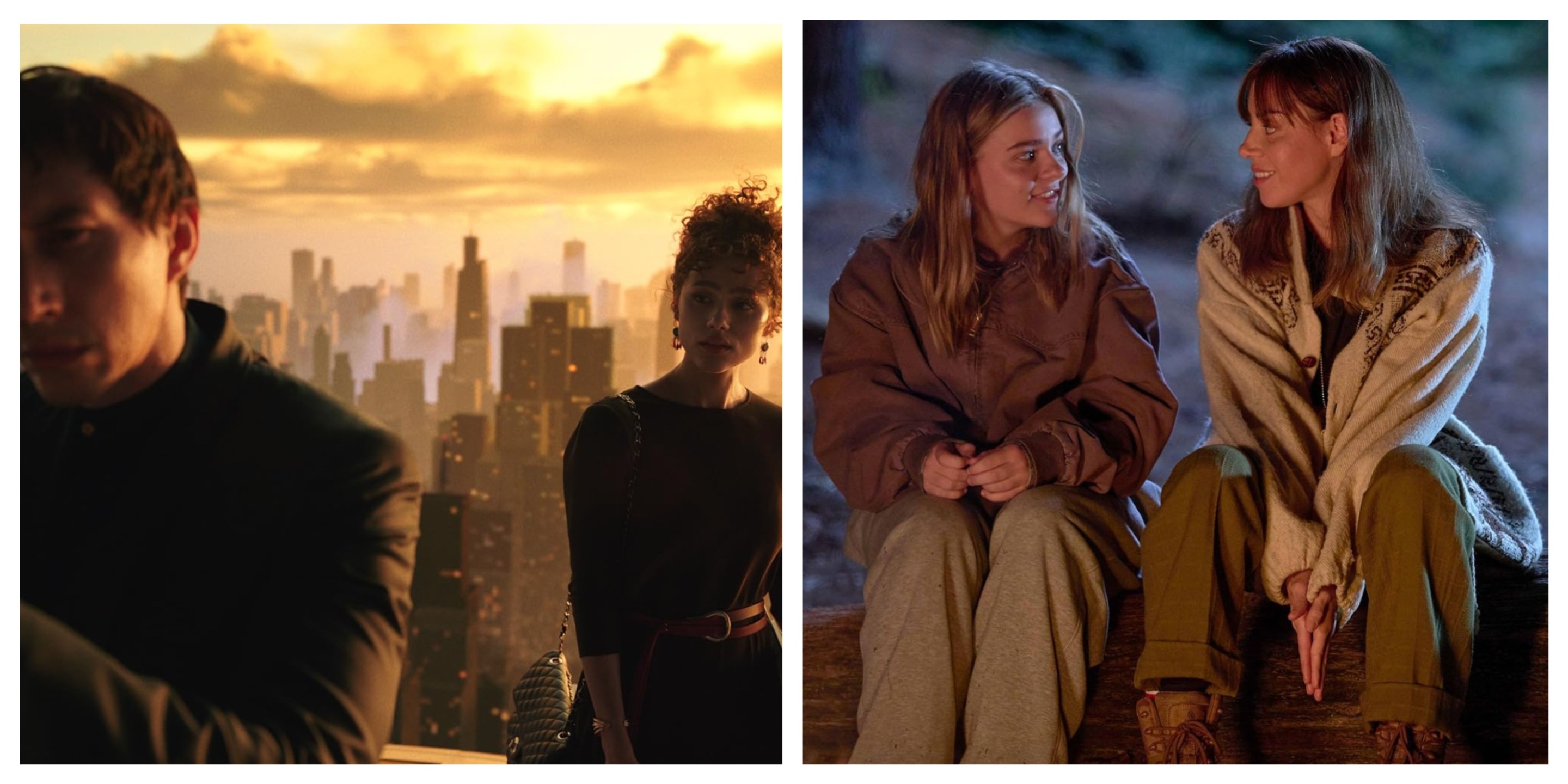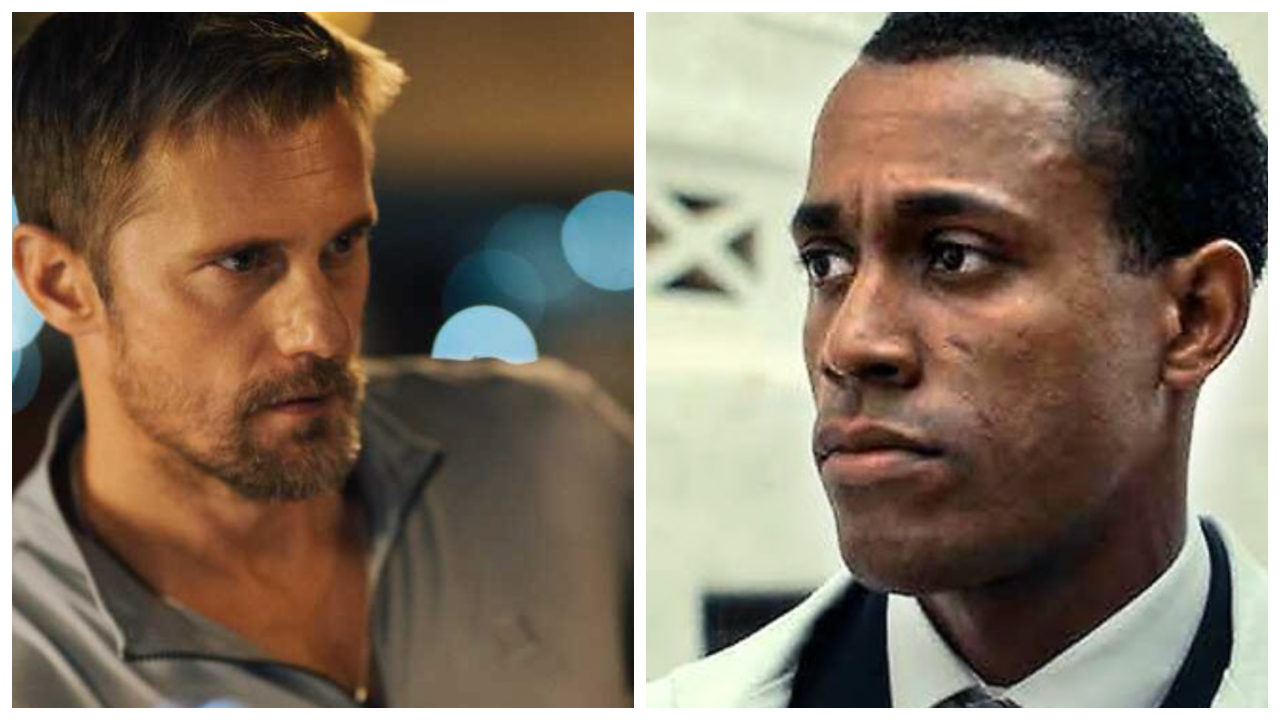An undisciplined cornball’s autocratic celebration of humanism, Francis Ford Coppola’s Megalopolis is a movie for people who manically deem any mere mess of a film “batshit” and therefore essential viewing, for cineastes who refuse to distinguish between the incomprehensible and the incoherent, or for sentimentalists who consider the completion of a quixotic project as achievement enough.
But I wouldn’t recommend Megalopolis to people who just happen to like watching movies—or even to people who like watching movies fail. Not even to you perverse hate-watchers out there eager to mock the fruits of a wintry lion’s hubris. An 85-year-old filmmaker pouring nearly half of his life and all of his winery fortune into what will surely stand as his swan song is a helluva backstory, granted. But there are too few remarkable moments to balance out the pedestrian bits, haphazard framing, and wrong-headed choices here. All that kept me engaged was the dwindling anticipation that Megalopolis might gel into something beyond grandiose mediocrity.
Coppola’s thesis here (always beware a movie with a thesis) is that the United States is just like the Roman Empire, a longtime pet concept of people who prefer Big Ideas to accurate ones. (Curiously, Megalopolis never addresses one way we truly are like Rome: our bloated war budget and overextended military.) The city of New Rome, where he lays his scene, is largely indistinguishable from New York City (there’s even a Chrysler Building), except much of it is sloppily computer-generated. And if Coppola can’t say anything original about America-is-Rome he’ll just slather on the visual comparisons, particularly delighting in the decadent be-toga’d cuties who epitomize our cultural sickness by making out with each other. O mores!
If Ayn Rand had written The Power Broker about a pretentious tech guru with a bad haircut, she might have imagined Adam Driver’s Cesar Catilina. (Assume everyone’s hairstyle in this movie is atrocious unless explicitly told otherwise.) He’s determined to build the city of the future from a substance called Megalon, flattening housing developments in the process, and we know he’s smart because he has a Nobel and he randomly delivers two-thirds of Hamlet’s “to be” soliloquy at a major city event.
Catalina’s rival is a subdued Giancarlo Esposito as Mayor Frank Cicero, a hard headed realist trying to rescue the city from debt; he unsuccessfully prosecuted Catalina for murder when he was the D.A. (What? Why? Never mind. ) Meanwhile, Cicero’s playgirl socialite daughter, Julia (Nathalie Emmanuel, who I gotta say has never looked more beautiful—even her hair is wonderful), recognizes Catalina’s ability to stop time, and joins forces with him, politically and romantically.
Ah, but Catalina has other foes as well. Simply by enjoying herself, Aubrey Plaza runs away with the picture as, yes, Wow Platinum. Messalina as a CNBC bottom-feeder, she’s a financial news reporter who ditches Catalina to canoodle with the doddering plutocrat Hamilton Crassus—played by Jon Voight, who, lucky for her (and unlucky for those of us who are irritated by the old fascist) is the only other person having any fun here. At least Voight justifies his presence. The reprehensible Shia LaBeouf is just the pits as Crassus’s grandson, an effeminate, crossdressing lech who remakes himself as a demagogic tribune for the masses.
There are many more characters (Dustin Hoffman even shows up for some reason) but I won’t list ’em all because unlike Coppola, I don’t want to waste too much of your time. If only he’d given his all star cast a worthy goal, like racing across the country to win a million dollars or something. Instead they spout quotations out of context—from Marcus Aurelius and Emerson, from Plutarch and Rousseau—like your resistance aunt and your MAGA uncle meme-battling on Facebook.
Even if Coppola’s ideas did have substance, movies have to be watched, and Megalopolis just isn’t much to look at. The film’s visual effects have drawn comparisons (some even meant as praise) to low-budget cult moviemaker Neil Breen and to Tubi originals, but to me everything looks like an artist’s rendering suffused with a sickly gold tint. It’s over two hours of “we can fix it in post” left unfixed. When a statue of justice unexpectedly and sorrowfully comes to life, I’m not poised to reflect on the decline of New Rome. I just wanna call the Ghostbusters.
Megalopolis is set in the kind of dystopian late-20th century version of New York that’s home to every Batman movie, and for the same reasons: These stories rely on an outdated vision of urban decay for their drastic solutions to make sense. Megalopolis works backward from its conclusion that only a great man can imagine the future because Coppola believes himself a great man who can imagine the future. And like Fellini before him, Coppola wants to have his circuses and eat his bread too, demanding condemnation of the spectacles he fashions.
As in Shakespeare’s Rome, the unruly mob that gathers around the edges of this story is not composed of individuals. It’s a truly lumpen mass of exploitable passions, so dim it can be swayed and commanded by Shia LaBeouf. Hardly a democratic impulse from a guy whose hero ends the film by calling for “a great debate about the future”—after he’s already blown up your apartment.
Politics aside, the multiple overlapping plots of Megalopolis aren’t driven by its characters’ needs and desires or any other narrative logic. Each new event is simply willed into occurring by Coppola. And for added tonal clashes, every member of the cast seems to have a different concept of what movie they’re in.
At the center of it all, Driver splits the difference between stylization and method acting, expending energy with a rootless intensity that suggests depth about as artfully as a pencil shading. Maybe it’s his presence that kept me thinking about Leos Carax’s Annette, a movie I can’t say I enjoyed but was absolutely true to its bonkers aesthetic. In that musical melodrama, Driver plays a Byronic performance artist who kills his wife; then their freakish CGI child becomes a global singing sensation. One of Megalopolis’s visual peaks, in which a crew of singing vestal virgins descended in a series of quarter moons, seemed a deliberate echo. But Grace VanderWaal, you are no Baby Annette.
The embarrassing promo campaign that ginned up fake pans of now-acknowledged Coppola classics was on to something. For all the good faith (if unconvincing) defenses of Megalopolis out there, there are certainly a few critics, and ordinary viewers as well, hedging their bets against the possibility that 20 years from now, the film will be re-evaluated as a once-maligned classic. (If he lives long enough, Coppola, who has become cinema’s great second guesser, compulsively re-editing his films, may even release an alternate cut.) And it probably will be re-evaluated. People are always defending terrible 20-year-old movies from their supposedly misguided contemporary critics. That doesn’t make them right.
If nothing else, Megalopolis will hardly convince dull realists to trust in effusive visionaries. Really? For this? The studio bean counters who’ve demanded sane running times and commercial accessibility over the years may have sometimes been villains but they weren’t always idiots. Unrealized genius is a tragedy. The dwindling budgets for ambitious filmmakers is a real threat to art. But ambition isn’t always a positive attribute, and if anything, film history treats megalomaniacs far too kindly, squinting past what we see for evidence of what we should have seen. Ultimately, what’s most disappointing about Megalopolis is that this is exactly the movie that Francis Ford Coppola wanted to make.
***
Aubrey Plaza also co-stars in another movie opening this week, My Old Ass, which she pointedly does not steal. Instead, she does something harder—she provides the subdued, grounded foil that enables a breakout performance from 20-year-old Canadian actor Maisy Stella. My Old Ass is as concerned with the future as Megalopolis, though in a more quotidian way. If its thoughts on life are familiar (“carpe diem,” as the classicist Megalopolitans might say), the story it tells refreshes them.
Both women play Elliott Labrant—Stella as a teen, Plaza as the 39-year-old incarnation that her younger self inadvertently summons on an 18th-birthday mushroom trip. Before the hallucination fades, Future Elliott enters her number in Young Elliott’s phone, tagged as “My Old Ass,” allowing the two to communicate across time. As Young Elliott endures her last summer on her parents’ cranberry farm before moving to Toronto for school, her older, wiser self tutors her on how to live. (Ah, but which version of Elliott will truly learn a lesson about life?)
Future Elliott gives her previous self one piece of ironclad advice: Do not get involved with a boy named Chad. (Pretty wise counsel in general. Sorry to you decent Chads out there.) Young Elliott, who’s hot for girls anyway, thinks that should be easy enough until she runs into a boy named Chad (Percy Hynes White). Then she just keeps running into him.
Try as she might, Elliott can’t figure out how this nice, cute boy could ruin her life—or why she’s suddenly considering what she calls “dick sex.” The film handles Elliott’s comic moment of straight panic well. Not too long ago, before our sexually fluid age, a lesbian falling for a guy might come across as a betrayal of her queerness, and maybe in some quarters it still does, but here Stella-as-Elliott resigns herself to bisexuality with the right amount of reluctant adolescent malleability.
(Bad real-world news about White: He was booted from the cast of Wednesday after accusations that he was inappropriately texting with minors. For the sake of a clear viewing conscience here, let’s assume he was cast prior to those revelations.)
My Old Ass doesn’t dig much into the potential wackiness of its premise or try to live up to its mildly spicy title, though Young Elliott does suggest a makeout sesh that her elder self immediately shoots down. Instead, it goes for the heart, as the teen, at the adult’s urging, learns to appreciate her brothers and her mom and the end of her childhood. Meanwhile it’s hinted that the future she’ll someday inhabit is a sort of not-quite-dystopia, where environmental disaster has become routine. And that’s not even to mention whatever Chad will do to ruin her life. Let’s just say things get really weepy.
Writer/director Megan Park is a one time child actor (best known for The Secret Life of a Teenager) who pivoted to directing in 2021 with The Fallout, a solid little movie about the aftermath of a school shooter starring Jenna Ortega and Maddie Ziegler, who plays one of Elliott’s friends here. And while we’re on the subject, Ziegler is terrific in the uneven but charming teen comedy Fitting In, about a girl born without a uterus.
These are the movies, modest in scope, that I increasingly find myself rooting for. I know I’m a sucker for a well-done coming-of-age movie, and as I’ve said before, this past decade has been great for them, particularly for girls coming of age. Maybe it’s because these girls’ stories can’t fully dodge the difficulties (and even dangers) of growing up and won’t indulge in the pathetic nostalgia for youth that boys and men are typically sold. Maybe it’s that after centuries of sentimentalized female adolescence films that treat sex and drugs frankly are a relief.
Or hell, maybe I’m just an old softie. As shallow as the cliche “you’ll laugh, you’ll cry” supposedly is, those were the two things Aristotle wanted theater to do to us, you know. Like all film messages, My Old Ass’s call to be “young and dumb” is one only some of us need to hear some of the time. But that’s often enough. I just wish My Old Ass had been released in summer, when it still had time to emotionally crush graduating seniors who thought they were ready to leave their parents behind.
Maisy Stella is the reason to see My Old Ass. You might know her as half of the young singing duo (alongside her actual sister) from the TV show Nashville years ago. As Young Elliott, she’s all impulse and immediate reaction, channeling a recognizable teen energy that never condescends or idealizes. (At times she made me think of a femme-ier Nina Moran—Kurt from Skate Kitchen and Betty, if that means anything to you.) I hope she finds movies that allow her to expand her range, though I doubt she’ll find another that lets her re-enact a full Justin Bieber video.
My Old Ass won’t go down in the annals of film history. You might even call it slight, though that should make you ask yourself why you consider some stories more significant than others. There’s certainly less for critics to say about My Old Ass then about Megalopolis. It’s a simpler text. But it does raise an interesting question worth considering: What if the future of cinema turned out to be… pretty good movies?
Megalopolis
GRADE: C
My Old Ass
GRADE: A-
Both films are now playing in area theaters.






